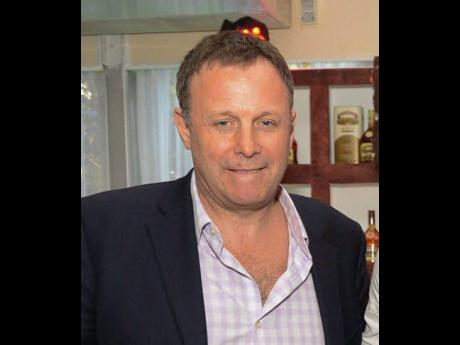CPL defends commercial impact, says ‘ownership isn’t everything’
PORT-OF-SPAIN, Trinidad (CMC):
THE CARIBBEAN Premier League’s (CPL’s) chief executive officer, Pete Russell, has hailed the annual Twenty20 showpiece as one of Cricket West Indies’ (CWI’s) “largest domestic, commercial partners”, as he robustly defended the league’s positive commercial impact on the region’s cricket landscape.
Speaking on the final day of the two-day CARICOM conference on West Indies cricket, themed ‘Reinvigorating West Indies Cricket’, Russell outlined the CPL’s financial state of affairs, pointing to its operating costs, losses, investors, and the fact that the league assumed “100 per cent” of all risks involved.
Russell said the CPL had also contributed significantly to player economic welfare, with nearly US$28 million going to salaries since the start of the tournament in 2013.
“Over the past 11 years, cumulative losses across both the league and franchises stand at close to US$40 million,” Russell said.
“Dennis O’Brien and Digicel have been the principal investors, not only investing in the league from day one, but they also spent money on sponsorship and media rights.
“The franchises have also pumped in significant money, money that helps pay players and coaches, as well as investing in local businesses around the region that help make the games happen.
“All the franchises have made losses.”
He continued: “So, on the positive side, Cricket West Indies have been paid close to US$17 million in sanction fees. So, over the past 12 years, CPL would be one of CWI’s largest domestic, commercial partners.
“Caribbean players have taken home US$27.7 million in player salaries since the tournament’s inception, all paid for by the franchises.
“Each year, it takes US$25 million to run this tournament over five weeks. CPL and the franchises bear all these costs. There is no financial burden on CWI or the territorial boards, so the risk is 100 per cent ours.
“So that is our starting point each and every year. So, as you can imagine, the commercial challenges are considerable just to break even.”
Russell was speaking against the backdrop of criticism of the league on the opening day of the conference, with calls being made for the current long-term contract between CPL and CWI to be renegotiated.
The issue of the league’s ownership also arose, with suggestions put forward that, if CWI controlled the tournament, players could potentially benefit more financially and regional cricket development better enhanced.
However, Russell, a member of the CPL management team since the tournament’s inception, said “ownership isn’t everything”, contending it was important for governing bodies like CWI to find investors in order for franchise leagues to be successful.
“What is interesting is that other leagues around the world are following the lead of CWI,” he pointed out.
“They are also looking for third-party investors to help fund their leagues. The English Cricket Board are in the process of selling The Hundred, the Australian Cricket Board are courting outside investors for the Big Bash, Cricket South Africa sold all their rights to host broadcaster Supersport, and the new American league, Major League Cricket, is 100 per cent privately owned.
“In time, only the IPL will end up being 100 per cent owned by its domestic board, and that is simply because they can afford to do so.”
He continued: “So trust me when I say ownership isn’t everything, and smart stewardship and partnership can yield better results. But, of course, we’re always happy to listen to any suggestions on how we can improve things.”

